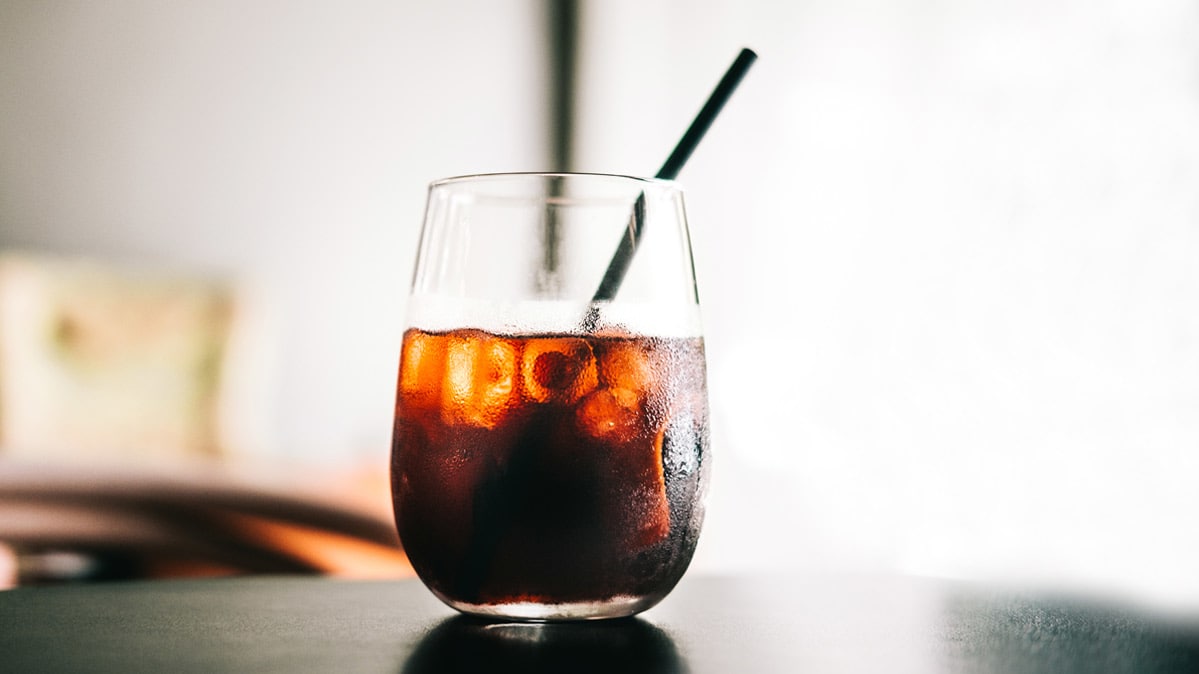What is the effect of caffeine on the body? Is it too much to drink three drinks a day?

Professional coffee knowledge exchange more coffee bean information please follow the coffee workshop (Wechat official account cafe_style)
"I'll order a cup of coffee. What would you like to drink?"
"I'm sensitive to caffeine. I'm afraid I can't sleep at night. I'd better have tea."
"scared? Isn't there caffeine in tea? Aren't they all the same? "
Which is better, tea or coffee? Is caffeine good or bad for your health? Let's take a look!
What is caffeine?
Caffeine is a natural insect repellent found in plants. If plants contain caffeine, small insects will die. Later, people found that plants containing caffeine have a refreshing effect, and more and more people like to make drinks. "coffee, tea, and cocoa," which are called the three major drinks in the world, all contain caffeine. Caffeine is also found in carbonated drinks and energy drinks.
Therefore, do not think that caffeine only exists in coffee, in fact, tea, chocolate, cola and so on all contain caffeine.
Since it is difficult to avoid caffeine in our lives, people always want to know what changes caffeine will bring to our bodies. When caffeine enters the body, it is mainly metabolized by the liver. The strongest effect of caffeine is an hour after drinking it. In about four to six hours, the body has eliminated half of the caffeine; but it takes about 40 hours to metabolize 200 milligrams of caffeine. However, these values are only averages. our body's genes and not drinking caffeine often affect caffeine metabolism, and everyone's reaction will not be exactly the same.
Pure caffeine is bitter, but why do humans want caffeine in the first place? It turns out that caffeine is a natural pick-me-up that stimulates the central nervous system, makes people more alert, reduces pain and increases muscle tolerance.
However, when caffeine is a wake-up call, some people find it difficult to fall asleep after drinking it, or are prone to panic, anxiety, and even elevated blood pressure and heartbeat.
The effect of caffeine on the body
So what exactly is the effect of caffeine intake on health? Next, let's take a look at the results of several studies.
◎ cardiovascular system
After entering the middle and old age, people are most worried about whether caffeine will cause cardiovascular disease. Since caffeine is an irritant, it does temporarily accelerate the heartbeat and raise blood pressure. for people who haven't drank a lot of coffee in the past, a sudden cup of coffee may cause heart discomfort and raise blood pressure.
However, if you are already a habitual coffee and tea drinker, moderate caffeine intake will not cause your heart to jump into dangerous arrhythmias, according to a 2016 study in the Journal of the American Cardiology Association. Drinking coffee for a long time doesn't cause high blood pressure.
It is worth reminding that "from what drink to caffeine" can make a difference. The 2017 study found that when healthy people drank 1000 milliliters of energy drinks (containing 320mg of caffeine) (about four cans of Red Bull), it had an impact on the cardiovascular system. The otherwise healthy subjects had abnormal electrocardiograms two hours after caffeine intake, and their blood pressure was still slightly elevated six hours later. Maybe it's not just about caffeine, because there are sugars and other stimulants in energy drinks, and caffeine intake from here is likely to have a greater cardiovascular effect.
◎ cranial nerve
Another point that people really care about is whether drinking coffee can reduce dementia or prevent Alzheimer's disease. People who drank an average of 261 milligrams of caffeine a day showed fewer symptoms of dementia than those who drank an average of 64 milligrams of caffeine a day, according to a 2016 observational study.
261 milligrams of caffeine per day is about two to three cups of caffeine, while 64 milligrams of caffeine per day represents less than one cup of caffeine per day. Although such findings seem to mean that drinking two cups of hot beauty a day can reduce the likelihood of dementia, scholars have not yet determined whether the benefit is purely due to caffeine, or whether coffee contains other antioxidants.
◎ erectile dysfunction
According to the 2015 study, men who regularly consumed two to three cups of coffee a day, regardless of other problems such as high blood pressure or overweight, were less likely to have erectile dysfunction than men who drank less or no coffee. This benefit may be due to the fact that caffeine increases local blood flow.
The key lies in the "quantity" and "source" of caffeine
For most people, the earth is not so dangerous. If there is no heart disease, blood pressure is still under control, usually drink one or two cups of coffee every day if there is no immediate discomfort, there will be no health concerns. If you don't like it, it's okay not to drink. You can reduce your chances of mental retardation by exercising regularly, controlling your weight, and eating a healthy diet. If you like, you can drink coffee or tea as long as you remember to master two major principles: the "amount" and the "source" of caffeine.
For healthy adults, the amount of caffeine consumed in a day is between 300 mg and 400 mg. If people with heart disease, the amount should be cut in half, do not eat more than 150 to 200 milligrams of caffeine a day. Do not touch caffeine under the age of 12, and teenagers should not exceed 100 milligrams a day. However, pregnant women should be more moderate, not more than 100 to 200 milligrams a day.
In addition, when consuming caffeine, remember not to eat more than a pile of sugar or food additives at the same time, tea with too much sugar, coffee with a pile of cream, will greatly reduce the possible health benefits of caffeine. It is better to eat sugar-free tea and coffee, and tea and coffee also contain other antioxidants, which are healthier. If you choose carbonated drinks or energy drinks, there are many additives, as well as sugar and other stimulants, which may affect your health, so don't touch them often.
END
Important Notice :
前街咖啡 FrontStreet Coffee has moved to new addredd:
FrontStreet Coffee Address: 315,Donghua East Road,GuangZhou
Tel:020 38364473
- Prev

Cold Brew Coffee: How do you make iced coffee? Do you know the four characteristics of iced coffee?
Professional coffee knowledge exchange More coffee bean information Please pay attention to coffee workshop (Weixin Official Accounts cafe_style) Summer high temperature in July and August makes people lose appetite, at this moment only want a cup of cold drink to relieve the heat. Coffee lovers, do you know that there is another way to drink cold coffee besides adding ice cubes? This special brewing method is called "iced coffee"
- Next

About the source of the development of coffee what are the three original species of coffee beans
Professional coffee knowledge exchange more coffee bean information Please pay attention to Coffee Workshop (Wechat official account cafe_style) nowadays, there are more than one hundred kinds of coffee all over the world, all of which are grown and propagated by these three native coffee beans, and all kinds of coffee beans are named differently according to variety, origin, brand, port of export, exporter, etc. The so-called three original species of coffee are
Related
- Beginners will see the "Coffee pull flower" guide!
- What is the difference between ice blog purified milk and ordinary milk coffee?
- Why is the Philippines the largest producer of crops in Liberia?
- For coffee extraction, should the fine powder be retained?
- How does extracted espresso fill pressed powder? How much strength does it take to press the powder?
- How to make jasmine cold extract coffee? Is the jasmine + latte good?
- Will this little toy really make the coffee taste better? How does Lily Drip affect coffee extraction?
- Will the action of slapping the filter cup also affect coffee extraction?
- What's the difference between powder-to-water ratio and powder-to-liquid ratio?
- What is the Ethiopian local species? What does it have to do with Heirloom native species?

